Lifetime Achievement Award
At the 2012 CASAE/ACEEA AGM, members approved the creation of a CASAE/ACEEA Lifetime Achievement Award to honour exceptional contributions given by an individual or program/agency to the field of adult education in Canada. Submissions will be reviewed on the basis of academic, organizational and policy achievements and completeness of the submission (all required materials included in submission).
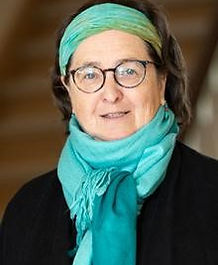
2024 – Carole Roy
19 June 2024
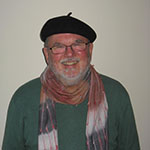
2023 – Michael Welton
Welton has been an extraordinarily prolific writer and is an accomplished international researcher and scholar. It is easy to forget that CASAE and CJSAE are relatively new and Welton’s UBC graduation overlapped with these early developments and he was integral in the first generation of Canadian scholars who shaped the contemporary field of study and practice in adult education. His impressive CV shows the depth of his commitment as a top tier academic, which has continued into his official retirement from full professorships at Dalhousie University and Mount St. Vincent University.
As a contributor to the fledgling CASAE association in its formative years, Welton presented his historical research at annual CASAE and AERC conferences, led the development of a CASAE history colloquium, and edited the CASAE history bulletin. He served as president of the association (1995-97), and as the book review editor for the CJSAE (1986-96). The Association and the Journal were the building blocks of the Canadian field, and those who were there in its formative stages will know that Welton was a constant contributor and creator.
Welton’s scholarship is acknowledged as carefully done, wide-ranging, and original. He was awarded the Imogene Okes Award for outstanding original research by the American Association for Adult and Continuing Education in 2002. As professor of adult education at MSVU, Welton led the development of an international educational partnership with Jamaica, creating access for local students and encouraging research between the countries. As an academic, Welton published 12 books in areas such as the Antigonish Movement, Habermasian theorizing, and women and learning.. Because his research is original, historical, and theoretical, it will be with us for a long time. He has successfully mapped the field of adult education history and contributed to developing a critical adult learning theory — conceptualizing historical movement and the organization of societies as complex learning systems.
One of his central concerns has always been to demonstrate how this conceptualization ought to proceed in shaping a critical social learning milieu that is democratic, just, and attentive to ethics. Of late, he has been publishing in the public press, writing no fewer than 130 articles on topics such as democracy, religion, politics, and freedom in Counterpunch. This is the stuff of adult education, and it brings us back to the early days of the CASAE when we were involved in all the pressing issues of the day. While his groundbreaking books Designing the Just Learning Society: A Critical Inquiry and In Defence of the Lifeworld: Critical Perspectives on Adult Learning have greatly contributed to shaping critical adult education internationally, academics like Welton who have contributed to our field in multiple and profound ways need to be celebrated here at home.
2 June 2023
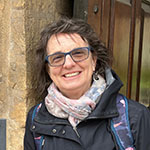
2022 – Darlene Clover
Darlene’s participation with CASAE extends to three (3) decades. She was co-president for two years (2002-2004), convened the CASAE annual conference (2005-2006), and was a reviewer for selection of papers for two CASAE conferences (2007 & 2016). She is currently a member of the editorial board for the Canadian Journal for the Study of Adult Education and was also a member for four years (2008-2012) as well as a guest editor for the international adult education journal, Convergence (2006). In addition to these activities for CASAE, she has been actively involved with no less than 42 refereed journals and national/ international organizations.
Currently a professor at the University of Victoria, she has taught more than 50 courses, supervised no less than 40 doctoral and master students, was a committee member on 25 doctoral student committees; since 2012 she was an external examiner on 37+ examinations of doctoral and master students. In addition, she mentored 28+ graduate students as research assistants. In recognition of her dedicated teaching, she has received the Teaching Excellence Award at University of Victoria.
Her dedication to scholarship is exemplary and she received the David Jones Award for Creativity in recognition of her excellence. She continues to have a substantial impact on major sub-fields of adult education research at the intersection of feminism and arts-based approaches including critical and feminist adult education; women’s leadership and activism; feminist cultural theory and visual methodologies; arts-based adult education and research; community and cultural leadership; museum and gallery praxis; and environmental adult education and ecological leadership. She has been remarkably successful in research funding and received 11 internal University of Victoria research grants, 13 national research SSHRC grants (Standard, Insight Development, Partnership development, Connection, International Opportunities), 8 work-study grants, as well as 6 grants from other national or international funders.
As a result of her research, she has published/co-published extensively including 56 articles in refereed journals, 18 co-authored/co-edited books, 54 chapters, and 50 papers in conference proceedings. In addition, she was guest editor/co-editor of 13 special editions of refereed journals, 14 book reviews, 21 articles in professional publications, 17 research reports, 45 presentations at academic conferences (only since 2010), and 71 national/international guest lectures/keynote .addresses. Given the prominence of her research, it is not surprising that she was the reviewer of 16 manuscripts/grant applications and 31 peer-reviewed articles (only since 2015). She has been remarkably successful at knowledge mobilization and public pedagogy with 11 collective artistic productions and/or exhibitions of her research findings. In recognition of her excellence in research, she has been invited as a Visiting Scholar or Honorary Fellow positions in 14 universities in England, Spain, Turkey, Australia, and New Zealand.
Darlene has a view of adult education that is-broad and inclusive. She has actively participated as a facilitator or evaluator in 39+ university institutes, training workshops, and chairing evaluation of organizations in a diverse range of locations in Canada and the United States as well as in England, Ireland, Italy, Australia, India, Thailand, China, and Chile. She has also taken an important role in academic committees including coordinating university programs for 10 years in addition to active participation in 35 university committees.
In conclusion, Darlene has been a strong and reliable presence with CASAE and actively engaged a surprising array of academic activities from teaching, mentoring, research and writing, editorial board, and evaluation of organizations. She has also a community-based practice and was involved in some stellar and creative projects. While she has a substantive impact on adult education in Canada, her impact is remarkably International as well. She has shown commitment and dedication to improve opportunities for adult learning and support the work of adult educators, be it within academic institutions, professional associations, or civil society organizations. She is enthusiastic, collaborative, reliable, creative, and remarkably productive.
16 May 2022

2021 – ICÉA
The history of ICÉA (Institut canadien d’éducation des adultes, between 1956 and 2004) is characterized by different focal points from one decade to the next. The period between 1946 to 1960 is one of consolidation and partnership building with colleges and universities, governments, Radio and TV Canada, as well as community groups and associations. In 1957, ICÉA becomes a founding member of the Canadian Commission for UNESCO (CCUNESCO). Between 1960 and 1969, ICÉA participates in the creation of public institutions for adult education. Its representations to the Commission Parent (The Royal Commission on Education), in view of the creation of an adult education sector at the ministry of education, lead to the establishment of the General Directorate of Continuing Education within the ministry. In collaboration with CAAE a conference is organized to determine an agenda for the promotion of adult education for the decade, and in 1964-65 ICÉA organizes the first conference of UNESCO in Québec.
The 70s are years of democratization and social change with three priorities in mind: Social development of marginalized groups; promotion of autonomous popular education and democratization of public institutions. Due to the efforts of ICÉA the Commission for the study of adult education – Commission d’étude sur la formation des adultes (CEFA) is established in 1979. In the 80s, ICÉA consolidates its influential role by the adoption of prior learning and recognition of competencies (RAC) and the creation of the tool kit “Question of competencies” in collaboration with its partners such as “Relais-femmes” and Centre d’orientation et de formation pour femmes en recherche d’emploi (COFFRE). ICÉA also supports the creation of the coalition of popular education groups for literacy of Quebec (RGPAQ) which is still active to date.
In the 90s, ICÉA is a strong advocate for the inclusion of marginalized and excluded populations in the government’s 1992 policy for the work -force, building a coalition of community organizations and supporting them by targeted research projects, reports and representations at parliamentary commissions. This is also the period for the creation of “Our strong competencies” a tool for the recognition of generic competencies and skills for adults without diplomas. This work continues to this date.
In 2002 ICÉA advocates for the adoption of The Government Policy for adult education and continuing education (PGEAFCÀ). An action plan is put in place in 2002 in the form of the creation of The Quebec Week for adult Learning which continued its operation until 2014, reaching out directly to over a million adults in 17 different regions of Québec while being very active at the international level with the International Academy for Adult Learning Advocacy (IAALA). Since 2015, well focused research initiatives for the development of indicators to track the most important goals defended by ICÉA, have consolidated its work by multiplying interventions based on consultations and research projects in the defense of the right of adults to learning, in particular during the pandemic. For 75 years ICÉA has had a clear impact on the public policy of Quebec and the excellence of this work is recognized and appreciated around the world.
I would like to add some personal comments on the remarkable role that the ICEA has played in building the global adult education movement. The ICEA was present at the in the first World Assembly of Adult Education in Tanzania in 1976. In 1985 the ICEA brought a full team to CONFNTEA who worked in the basement of the UNESCO headquarters on the creation of Right to Learn Document which still guides us in our global work. And of course, our close friend Paul Belanger became the Director of the Hamburg Institute of Lifelong Learning and the architect of the Hamburg Conference in 1997. He later became President of the International Council for Adult Education providing leadership for the Belem Conference in 2009 which released the Belem Framework for Action. And the spirit of internationalism persists still with the wonderful leadership being provided by the Director General of ICEA, Daniel Baril as the Chair of the Board of the Hamburg Institute for Lifelong Learning, the body responsible for the next CONFINTEA to be held in Morocco in 2022. I know of no other adult education organization in the world that has so effectively supported its national adult learning community while at the same time playing a central role in our global movement.
Budd Hall, 6 June 2021

2021 – Rachel Bélisle
Since the creation of tools in the field of andragogy, starting in the 1980s and stretching to her recent international collaborations, her work has had a clear impact on public policies in Quebec, and in research and practice circles. Indeed, Prof. Bélisle has gained international recognition in the field of research on prior learning and competency achievements and recognition. Prof. Bélisle’s research work has notably influenced the Ministry of Education of Quebec in guidance counselling and maintaining and reinforcing literacy competencies of adults without a diploma.
The preoccupation for social solidarity, for adults living in precarity, and the creation of favorable educational contexts for their lifelong and lifewide learning, taken together, constitute the main themes running through Prof. Bélisle’s research and practice. Prof. Bélisle has also brought her remarkable and generous contribution in forming the next generation of researchers around these themes by supervising more than 70 students at the MA and PhD levels.

2021 – Leona English
Professor English’s scholarship is strongly supported by her substantial academic grounding having completed numerous degrees. She received her first doctorate in 1994 in Religion and Education from Teachers College, Columbia University (NYC) and completed her PhD in Adult Education from the University of Technology, Sydney, Australia in 2007. Her Masters was completed in 1989 through St. Michael’s College at the University of Toronto. She has two undergraduate degrees: a BA and BEd from Memorial University of Newfoundland, one in Religious Studies and the other in Secondary Education.
Leona is a committed scholar and an academic citizen, someone who readily and with enthusiasm takes on numerous administrative and leadership roles. She served as department chair for the SFX Adult Education department for 10 years. CASAE has benefited enormously from her many years of service. She has served as the president, committee member of the Lifetime Achievement Award, member of the CASAE Board of Directors, Atlantic CASAE Coordinator, Canadian Commission of Professors of Adult Education, co-chair of several Atlantic regional conferences, chair of student research award committee, co-editor of Conference Proceedings, Program Committee member and chair of the Student Paper Selection Committee. Her work with the American Association for Adult and Continuing Education (AAACE) also included Co-chairing the Intercultural SIG and serving as a member of the Commission of Professors of Adult Education for many years.
From 2015-2016, Leona worked at the UNESCO Institute for Lifelong Learning (Hamburg, Germany) as the Head of Publications Unit and a member of the GRALE 3 (Global Report on Adult Learning and Education). Among her notable keynote addresses are the Cork Lifelong Festival (Cork, Ireland, 2016) and Global Think Tank at UNESCO on Lifelong Learning (2017).
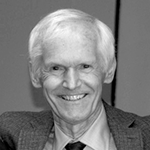
2020 – Bill Fallis
Bill has practiced every conceivable form of adult education at the municipal, national and international levels, in a range of adult education capacities from ABE to community development, college and university teaching, to program development, as researcher and evaluator, to international project coordinator. Bill was a project officer with the Ontario Ministry of Colleges and Universities in the mid-2000s, and has returned to this position since 2017. In this role, he has led the program standard review/development projects for over 20 community college programs. Internationally, Bill worked for the Commonwealth Secretariat in Samoa, Jamaica and St. Lucia consulting on ABE programs and earlier in his career in Indonesia as a volunteer with Canada World Youth. Volunteerism is in his blood.
Bill has served in a variety of leadership roles in CASAE since attending its founding conference in Montreal almost forty years ago, and then serving as national treasurer, president, member of Lifetime Achievement Award Committee, local conference coordinator, Ontario representative, member of the Board of Directors, and coordinator of the Membership Committee. Starting in 2000 he was a key member of the CASAE Peace Group, which organized events at OISE and presented at CASAE conferences. He always presents with others, showing his value on collegiality in the academy. Most importantly he held informal negotiating roles during strategic transition times for CASAE: with financing of the journal, reinstating charitable status with Revenue Canada, hiring a professional organizer and reestablishing CASAE’s secretariat with the Canadian Society for the Study of Education. Bill continues to contribute as a member of the Board, making sure that student and practitioner voices continue to be heard. The archives of CASAE are enriched with the beautiful photographs he has taken at most annual conferences and shared generously with the membership.
A champion of adult education and CASAE, Bill Fallis has led from behind as often as he has led from the front, which is the mark of a true adult educator.

2020 – Shahrzad Mojab
Since 1996 she has held a faculty position and leadership roles in the Adult Education & Community Development program at OISE/University of Toronto, supervising 16 completed doctoral dissertations and dozens of MA theses. She has been a member of the executive of CASAE, including a three-year term as president, and has served on the editorial boards of Adult Education Quarterly, Studies in the Education of Adults, Canadian Journal for the Study of Adult Education, International Journal of Lifelong Education, and Convergence.
Professor Mojab’s publications, based on her research throughout the Middle East, Europe and Canada, call for a greater understanding of lifelong education as a critical tool for social mobility, political participation, economic prosperity, and peace, with special attention to women, immigrants and refugees. She has argued for the development of new and critical approaches to education, theorized in her eight books and over 50 refereed articles in influential journals in her field. Her contributions extend to creative and collaborative ways of disseminating knowledge such as documentary filmmaking, visual arts, dance, and theater, employing participatory/cooperative teaching/learning models.
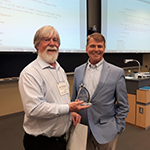
2019 – Jim Sharpe
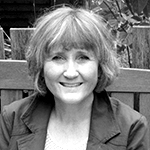
2017 – Shauna Butterwick
Her research approach, with students, faculty, community workers and NGO’s, has created inclusive communities of discovery across Canada and in places like India, UK, Australia and New Zealand. In over 100 publications she has focused on informal and social movement learning and policy recommendations for those living on the economic, social and political margins of society, particularly women.
Throughout her career, she has co-created knowledge with community organizations and associations, and has been an anchor in the work of CASAE. This award salutes her generous and sustained contribution to our field’s tradition of reflection and action for a more socially just world.

2017 – Maurice Taylor
He has trained and developed workplace practitioners and engaged them as researchers to develop and implement solutions on the ground. He has contributed actively to CASAE and to other organizations and partnerships, including the National Indigenous Literacy Association of Canada, Ningwakwee, and programs with public housing sites and injured worker groups. He helped establish the National Literacy Secretariat and has mentored literacy researchers and practitioners locally, nationally and internationally.
This award recognizes Maurice’s great contribution to serving those excluded from the formal education systems, democratizing the field of Canadian adult education.
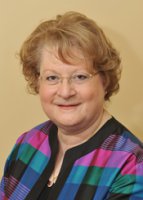
2016 – Arpi Hamalian
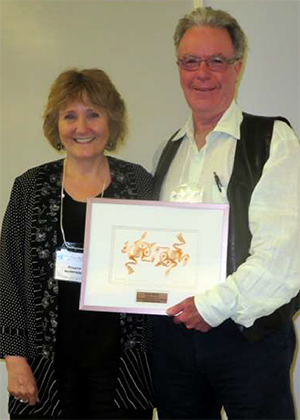
2015 – D’Arcy Martin
D’Arcy Martin is known for his practice, leadership and scholarship on Canadian labour education and for bringing popular education and social justice practices to a diverse range of non-governmental organizations. He has also played a major role in policy development bodies. He has held major leadership positions in labour education within the Canadian labour movement organizations including United Steelworkers; Communication, Energy and Paperworkers; Service Employees International Union, and the Public Service Alliance of Canada. He has written extensively on labour education including Thinking Union which many consider the most illuminating book yet written on labour education in Canada.
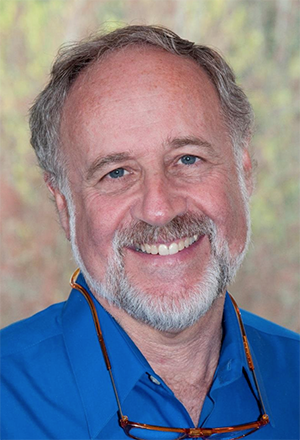
2015 – Budd Hall

2014 – Allan Quigley
About Us

Useful Links
Useful Links
Contact Info
260 Dalhousie Street
Suite 204
Ottawa, Ontario K1N 7E4
Telephone: (613) 241.0018
Fax: (613) 241.0019
Email: casae.aceea@csse.ca
© Copyright 2020-2022 CASAE * ACÉÉA | All Rights Reserved | Privacy Policy | Website by Windrose Web Design
